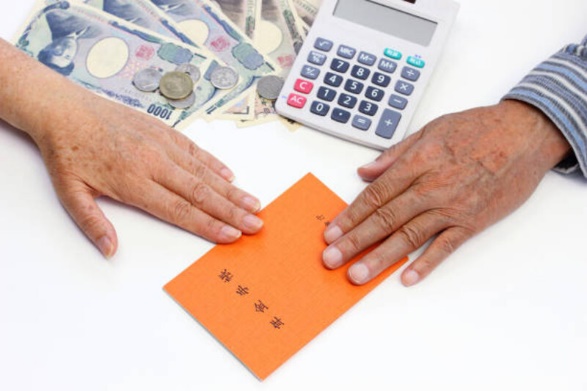Receiving a lump-sum pension payment can be a major financial windfall, but it’s important to know how to manage your taxes in order to maximize the amount you keep. Here are 10 strategies for avoiding or reducing taxes when receiving a lump sum pension payment.
1. Consider Rolling Over Funds Into an IRA:
When you rollover funds from your pension plan into an individual retirement account (IRA), you are able to defer tax payments until you withdraw money from the IRA during retirement. This can result in lower overall taxation of your pension income and allows you time to decide when and how much to take out each year, thus minimizing the tax impact.
2. Withdraw Only Portions as Needed:

If you decide to withdraw money from your lump sum pension payment, withdrawing only the amount you need for current expenses can minimize tax obligations. Withdrawing a smaller amount at a time can help keep your taxable income level low and reduce taxes owed in the current year.
3. Spread Out Lump Sum Across Multiple Years:
If you have multiple years of retirement ahead of you, spreading out the lump sum across multiple years is another great way to avoid taxes. This allows you to spread out the income over several years so that it won’t bump up your taxable income too much in any single year.
4. Take Advantage of Tax Deferred Gains:
If part or all of your pension was invested in stocks, mutual funds or other investments, you may be able to take advantage of the tax deferred gains. This means you won’t have to pay taxes on any capital gains until they are actually realized by selling the investment.
5. Pay Taxes in Installments:
If you decide to withdraw money and owe taxes on it, consider paying your taxes in installments rather than all at once. This can help spread out the financial impact of having to pay taxes on a lump sum pension payment over several years instead of one large chunk all at once.
6. Take Advantage of Tax Deductions:
There are many deductions available for those receiving a lump sum pension payment that can reduce taxable income and minimize your overall tax bill. Be sure to take advantage of any deductions you qualify for in order to reduce the amount of taxes you owe.
7. Consider Tax-Free Investments:

When investing your lump sum pension payment, consider putting money into tax-free investments or accounts such as Roth IRAs and municipal bonds. This can help ensure that the funds will continue to grow without having to worry about paying taxes on them each year.
8. Invest Portion of Lump Sum Payment:
Investing part or all of a lump sum pension payment can be a great way to turn a one-time windfall into long term financial security while minimizing your immediate tax impact. The growth within investments may also be taxed at lower rates than ordinary income, further reducing the amount of taxes you owe.
9. Utilize Tax-Sheltered Accounts:
Tax-sheltered accounts such as 401(k)s and 529 plans can also be used to help reduce the tax burden on a lump sum pension payment. Any funds deposited into these accounts will grow without having to pay taxes until they are withdrawn in retirement, which can make them ideal for managing a lump sum pension payment.
10. Consider Moving to a Lower Tax Bracket State:
Finally, if it’s financially feasible, consider relocating to a state with lower income taxes or no income tax at all. States like Florida, Nevada and Texas have no personal income tax while others such as New Hampshire and Wyoming only tax income from certain sources such as dividends and interest. Moving to a lower tax bracket state may allow you to keep more of your lump sum pension payment.
By understanding the available strategies for avoiding taxes when receiving a lump sum pension payment, you can ensure that you maximize the amount of money you keep in your pocket. With careful planning and consideration of all your options, you can make sure that your windfall goes farther than expected.
Conclusion:
Receiving a lump sum pension payment can be exciting, but it’s important to understand the tax implications of your decisions. By taking advantage of strategies such as rolling over funds into an IRA, spreading out lump sums across multiple years, utilizing tax-deferred gains and tax-free investments, you can help minimize taxes owed on your pension income. Ultimately, careful planning and knowledge of your options can ensure that you keep more of your money in the long run.
FAQs:
How to avoid taxes on lump sum pension payout?
There are several strategies you can use to help minimize taxes owed on a lump sum pension payment, such as rolling over funds into an IRA, spreading out lump sums across multiple years, taking advantage of tax-deferred gains and utilizing tax-free investments. Also consider paying taxes in installments or moving to a state with lower taxes if possible.
How to avoid taxes on a partial lump sum pension payout?
The same strategies that can be used to avoid taxes on a lump sum pension payment can also be applied to a partial lump sum payout. Consider rolling over funds into an IRA, spreading out the payout across multiple years, taking advantage of tax-deferred gains and utilizing tax-free investments.
What are the tax implications of a person lump-sum?
The tax implications of a person lump sum will depend on the individual's specific financial situation. Generally, they may be subject to income taxes as well as capital gains taxes on any investment portion of the lump sum. Depending on their situation, there may be strategies available for minimizing or deferring taxes owed.



